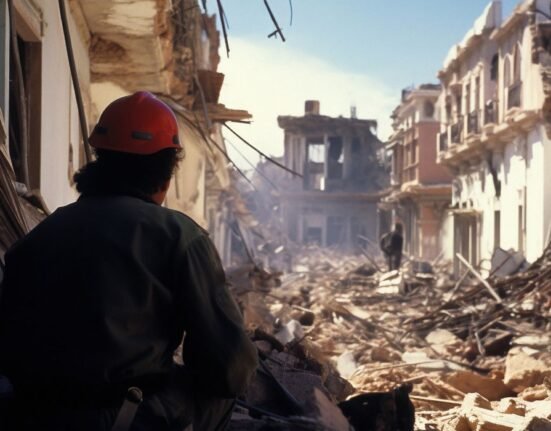Impact of Media Violence on Mental Health
How often do you witness violence while engaging with media? Which modes of media portray violence? Digital media has become an integral part of people’s lives today. Most people are exposed to media from a very young age. Parents use media to occupy their children when they need a break. As they grow up, they often interact with content that portrays violence. But what kind of influence does this media content have on growing children or even adults? This article brings attention to the consequences of being exposed to media violence and aims to make its readers aware, and in the process, more careful about how they interact with any kind of media.
Read More: The Psychological Impacts of Violent Films on Viewers
Portrayal of Violence in Media:
Violence can be seen in most, if not all forms of media. These forms include social media, newspapers, television, radio etc. It can be expressed in the form of news that is being viewed as videos, or heard as podcasts. It can also be presented as a part of entertainment in movies, cartoons, reality shows, etc. Violence is also portrayed in action-packed video games, which many kids engage in.
The main reason that violence presented in media is harmful is that these violence-packed media are also graphic. The reporters, directors and other content creators do this as a tactic to maintain the audience’s attention. These seemingly harmful means of portraying violence have simple aims such as communicating updates or providing entertainment. However, they indirectly and harmfully influence the viewers’ mental health.
Read More: What children feel when witnessing domestic violence?
Negative Influences of Media Violence:
There has been sufficient evidence over time that states that long-term exposure to media violence can have notable effects on individuals’ mental health. Many studies have established a positive correlation between exposure to media violence and an increase in issues such as aggression, desensitization, and anxiety. Effects of exposure mainly affect children or those adults who have genes that make them more susceptible to violence.
Since children are more likely to adapt what they observe, the American Academy of Pediatrics said that children who have constant exposure to violent media are likely to grow into aggressive adults, which in turn increases the likelihood of them engaging in violent activities. As a result of desensitization, children might grow up to become cold-hearted adults, being unable to empathize with those around them.
Further, if violent behaviour is not manifested in a child, they are likely to view the world as an aggressive place. This might make them easy victims who fail to realize that the real-world violence occurring around them is not meant to be. Research conducted by psychologists Leonard Eron and L. Rowell Huesmann, among others, was conducted in the 1980s. The results stated that those elementary school children who watch constant violence on television turn out to have high levels of aggressive behaviour as teenagers.
Another 2021 study on “Effects of Media Violence on the Mental Health of Viewers” surveyed 100 respondents. This survey revealed that 67% of the respondents agreed that violent behaviour is influenced by television, and 30% responded with ‘maybe’. This survey also showed that 85% of them agreed that violence in media is a big problem.
Bases of Influence:
Every behaviour and attitude developed or portrayed by individuals has a psychological origin to it. Repeated exposure to media violence shapes not only an individual’s perception of the world but also the attitudes and behaviours exhibited. Certain theories also show us how these influences take place.
- Cultivation Theory: A theory in mass communication and media, this was proposed by a sociologist, George Gerbner. According to this theory, viewers become more susceptible to underlying messages as the frequency of engagement with media increases. They also start perceiving these messages to be more valid and transfer the reality of what they view to the world. With repeated engagement, the viewers’ only beliefs align with what they view.
Read More: 8 Compelling Movies and TV Series That Explore Mental Health Themes
- Social Learning Theory: This theory is given by Albert Bandura, who was curious about children learning through observation. Through his famous Bobo doll experiment, Bandura exposed children to an adult who was seen harming a Bobo doll. When this set of children was presented with this doll, they exhibited the same violent and harmful behaviour, whereas those who didn’t view the violent action played with the doll sensitively. This established a connection between observation and action. Further, Bandura noted that children are more likely to exhibit a behavior that they have seen being rewarded, or that have received positive reinforcement. Audiences of media do not just take in content passively, they also engage in this process of observation learning.
- Normalizing Violence: Constant exposure to media violence instils the normalcy of the act in the viewer. When the media fails to adequately show the consequences of these behaviours, the audience may start to perceive these acts as socially acceptable. This leads to the normalization of violence.
- Desensitization: When the audience constantly views violent media, the emotional response to this kind of stimuli reduces. This reduces a person’s ability to empathize with one’s pain. This is known as desensitization, which is characterized by numbing one’s emotions towards a certain attitude.
Preventing the Impact of Media Violence:
Portrayal of Violence has spread a lot by the present time, and controlling it at a larger scale can be difficult and very time-consuming. However, some preventive measures can be taken at a personal level to reduce to negative effects of interactions with media violence.
- Media Literacy: This equips a child to be able to intelligently analyze content that they are being exposed to. Media education lets a person distinguish fiction and reality.
- Parental Guidance: As a parent, you are responsible for monitoring and regulating the content that your child is being exposed to. Other than that, having open discussions and breaking down media violence to a child will help in the prevention of violent behaviour.
- Uploading Thought-out Content: If you are uploading any kind of media content, be mindful and responsible while doing it. If violence is being portrayed, stress on the consequences it has as well.
- Promoting Positive Content: Interact with positive content and encourage others to do so as well. The media is more likely to produce what the audience wishes to see.
- Therapeutic Interventions: If you, or someone close to you, is experiencing negative effects of media violence, consult a therapist. They are equipped to help you unwind and process everything that you’ve been going through.
Read More: Impact of Hostile Parenting on Child’s Mental Health
Summing Up
It is undeniable that media violence influences mental health. However, it is also true that the effects vary from person to person. Many individuals might have little to no impact after exposure to media violence. However, when something is being presented to a wide audience, precautions must be taken keeping every consumer in mind. Awareness regarding media violence needs to be spread so people can take the necessary precautions. Media violence can have harmful effects on mental health and well-being.
There are many consequences to it, including violence and even anxiety or depression. Understanding the basis of influence and implementing the strategies of prevention is crucial in avoiding negative influences due to media violence. Media will remain an integral part of life. It is important that one does not get consumed by it and prioritizes their mental health.
Read More Articles on Psychologs +
- Mental illnesses
- Therapy
References
- https://www.researchgate.net/publication/349923234_Effects_of_Media_Violence_on_Mental_Health_of_Viewers
- https://www.apa.org/topics/video-games/violence-harmful-effects
- https://www.psychiatrictimes.com/view/violence-media-what-effects-behavior
- https://masscommtheory.com/theory-overviews/cultivation-theory/













Leave feedback about this